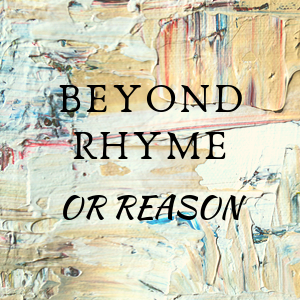Emulating, or imitating, a poet or author is a great way to experiment and develop your own voice. (Plus, it’s a great way to get started when you’re struggling to write.) I know it’s considered taboo to copy fellow authors; it’s considered theft of an idea or signature that makes what that poet or writer does unique. Imitation should not be shied away from, but you should be aware of the difference between imitation and copying.
Let me just tell you now that the best poets or writers didn’t become the best by just putting pen to paper. They practiced and practiced. And they emulated the poets that they idolized and respected. The best way to learn about the more complex and difficult poetic forms is to emulate those that have already mastered that particular form.
Take Shakespeare, for instance. He didn’t come up with his own sonnet form overnight. He took the original structure of a sonnet and played with it, developing it into his very own unique work. And since then, countless others have used Shakespeare’s sonnet as a format for their own writing. What about the Villanelle, as well? Or the Limerick? The Double-Dactyl? Someone somewhere was the first person to use these forms. We are all just imitating that person when we use these in our writing.
In an earlier post, “The Reading,” I talked about ‘stealing’ from fellow poets. This means using what you love or find inspiring in their work to develop your own voice and style. Don’t be afraid to start a poem with the same pattern, or to use a line (as a quote, of course) to start your own poem. This will give you a starting point. Who knows, you might end up deleting that quote or changing up the structure a bit during your revision process.
I used to say that I didn’t like reading poetry, although I enjoyed writing it. But I discovered something: the more I read poetry, the various authors with their own unique techniques, the more I find myself inspired to write. It’s the same for books as well. For instance, Jeff VanderMeer has become a strong influence on my own writing. Whose writing do you find so good, so unique that you have to read everything that person writes? Orson Scott Card? Agatha Christie? Shakespeare? Edgar Allen Poe? Sylvia Plath? Why not try to emulate your favorite author while trying this exercise. It will be a great way for you to figure out what this author does that you love so much. It could be dialogue, description, setting, character interaction. It doesn’t matter, but once you figure out what it is, why not give it a try? Once you have developed a good grasp on the form or tone of a poem or writing, revise it, develop it, and turn it into your own unique piece.
So here’s an example. I emulated the poem “Memory from Childhood” by Antonio Machado. Obviously, I’ve edited and revised this poem since it’s first draft. It doesn’t even have the same structure as Machado’s poem anymore. I developed it and turned it into my own piece.
Contact
| A brisk wind on a warm February morning. The cars pass by, a rush of panicked stillness resting in each exhausted face. It was the crossroads; One going West, the other South. Flesh, simply human in its frailty, is impacted. My body, sticky with sweat, my breath heavy, music — only a moment ago filling my veins, filtered through eardrums. The hardened factory-made plastic with steel and rubber: no no nonono I say to it, hoping, hoping he would stop. A brisk wind on a warm February morning. The cars pass by, a rush of panicked stillness resting in each exhausted face. |

That was really helpful. Thanks for the ideas.
I’m glad you liked it. Good luck with your writing.
[…] for the last writing prompt, we wrote a poem in the style of a specific poet, eventually revising it and turning it into our […]